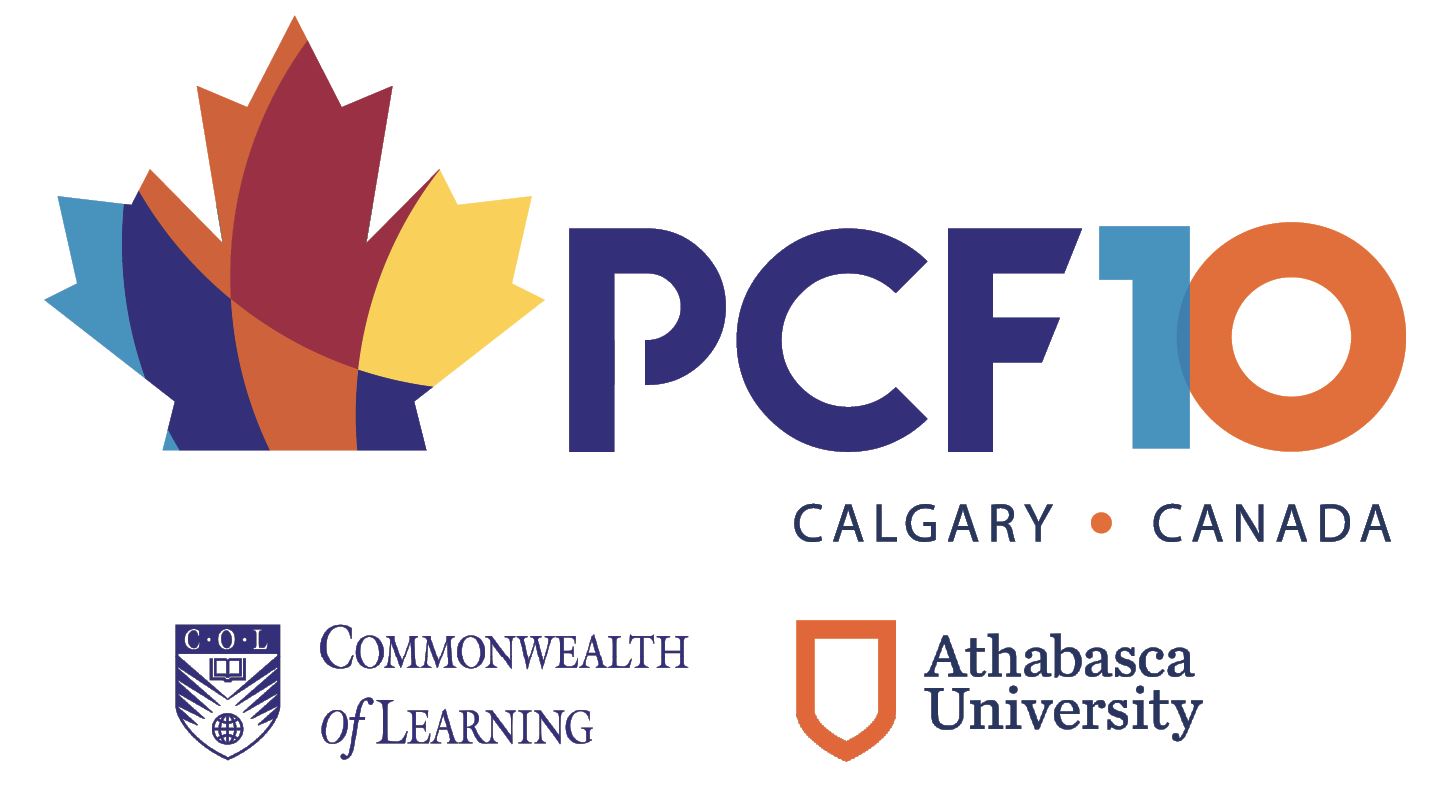
The Calgary Communique (Download PDF)
Forum partners from over 40 countries from all four regions of the Commonwealth – with a total of approximately 2.5 billion people – believe that it is possible to significantly accelerate progress towards the aim and targets of the Sustainable Development Goals (SDGs) in general, and SDG4 in particular, to innovate for more resilient education systems and to address at least some of the challenges of climate change by prioritising the following collective actions now:
- Building resilience
- Ensure policies and political commitment for supporting learners, teachers and parents to adopt the new normal in education and to find ways to leverage existing capacities to support communities;
- Identify and share examples of resilient systems from different perspectives and transfer the learning into improved practice; and
- Improve student learning, professional development, open education design, delivering of learning opportunities and the management of organisations.
- Fostering lifelong learning
- Support communities to help “domesticate” the use of technology for functional literacy programmes for livelihoods;
- Situate lifelong learning frameworks within regional, national and international contexts to help the movement of skilled people across boundaries;
- Identify and share examples of policy and practice which help ensure the employability of youths and provide replicable models for skilling and re-skilling, as well as the use of appropriate technologies for lifelong learning and;
- Establish national and trans-national qualification frameworks which support recognition of micro-credentials and modular, trans-disciplinary training which is in sync with the changing world of employment.
- Inspiring innovations
- Identify examples of effective innovative pedagogies which can be replicated in local contexts, particularly those which are responsive to changes in learning during a process of lifelong learning;
- Identify examples of new experiments with the use of technology in education and innovations to reduce the carbon footprint in education and;
- Adopt innovations with the potential for scale at low cost, to help lower and middle-income countries build resilient education systems.
- Promoting equity and inclusion
- Ensure decisions made about Open and Distance Learning provisions are driven by national, institutional and individual commitment to the principles of equity and inclusion;
- Improve access to quality educational opportunities for the disadvantaged and the marginalised and;
- Ensure robust monitoring and evaluation of equity and inclusion interventions and the closing of feedback loops into improved practice.
- Placing special focus on education for girls
- Identify and share innovations in offering programmes leading to skills and employability of girls and young mothers to improve their livelihoods;
- Measure learning quality in programmes for women and girls, especially from the perspectives of programme effectiveness, ensure the data is used to improve practice and;
- Create specialised lifelong learning environments for women to support sustainable development based on active sponsorship and mentorship.
- Harnessing emerging technologies to improve quality of life
- Identify and share technological innovations for delivering and managing large, as well as small, flexible learning opportunities that are based on principles of improving quality of life to create new, innovative methods of promoting education across the Commonwealth to help protect the environment;
- Ensure that technology is deployed for educational purposes in ways which protect users from any kind of cyber threat and;
- Recognise that climate change has the greatest negative impact on nations which contribute least to the problem and invest in targeted interventions that educate and lobby for policies and practices that are people-centred, future-driven and enabled by the use of green technologies.
Our ambition is to achieve this through:
Bold inclusive collaboration
A. Bringing together role-players from government, business, education and civil society to work together collaboratively towards policies and practices based on sustainable development, rather than unsustainable continuous economic growth, and respect for indigenous and traditional knowledge; and
B. Recognising and harnessing the power of families, communities and educational institutions to effect change for sustainable development at the local community level.
Sustaining the momentum
C. Sustaining and building a pro-active community for sustainable development through the Council of Ministers of Education, the Commonwealth Heads of Government Meeting and the 11th Pan-Commonwealth Forum; and
D. Leveraging emerging affordable, accessible and easy-to-use technologies in education to accelerate sustainable development to improve quality of life everywhere.


